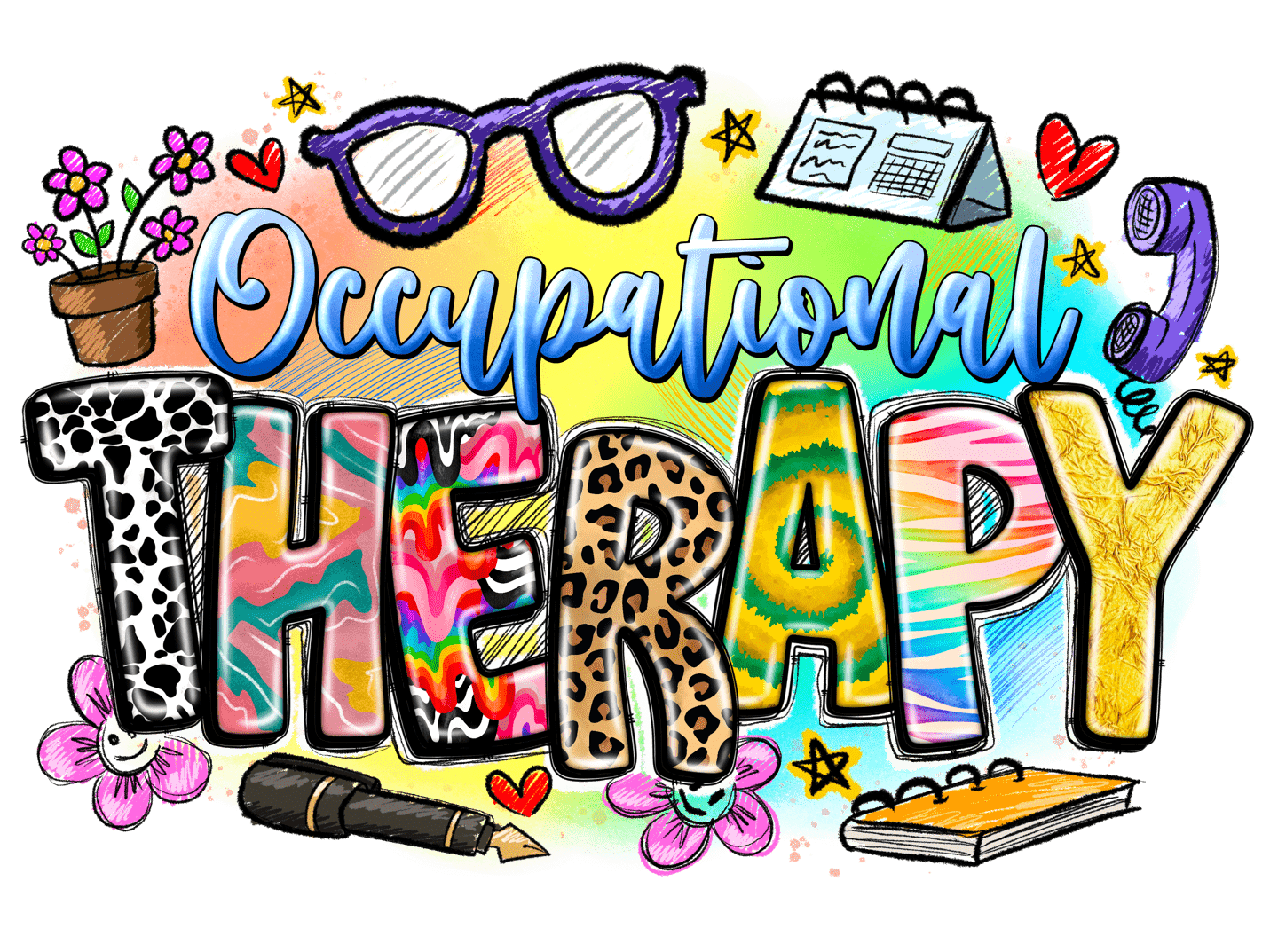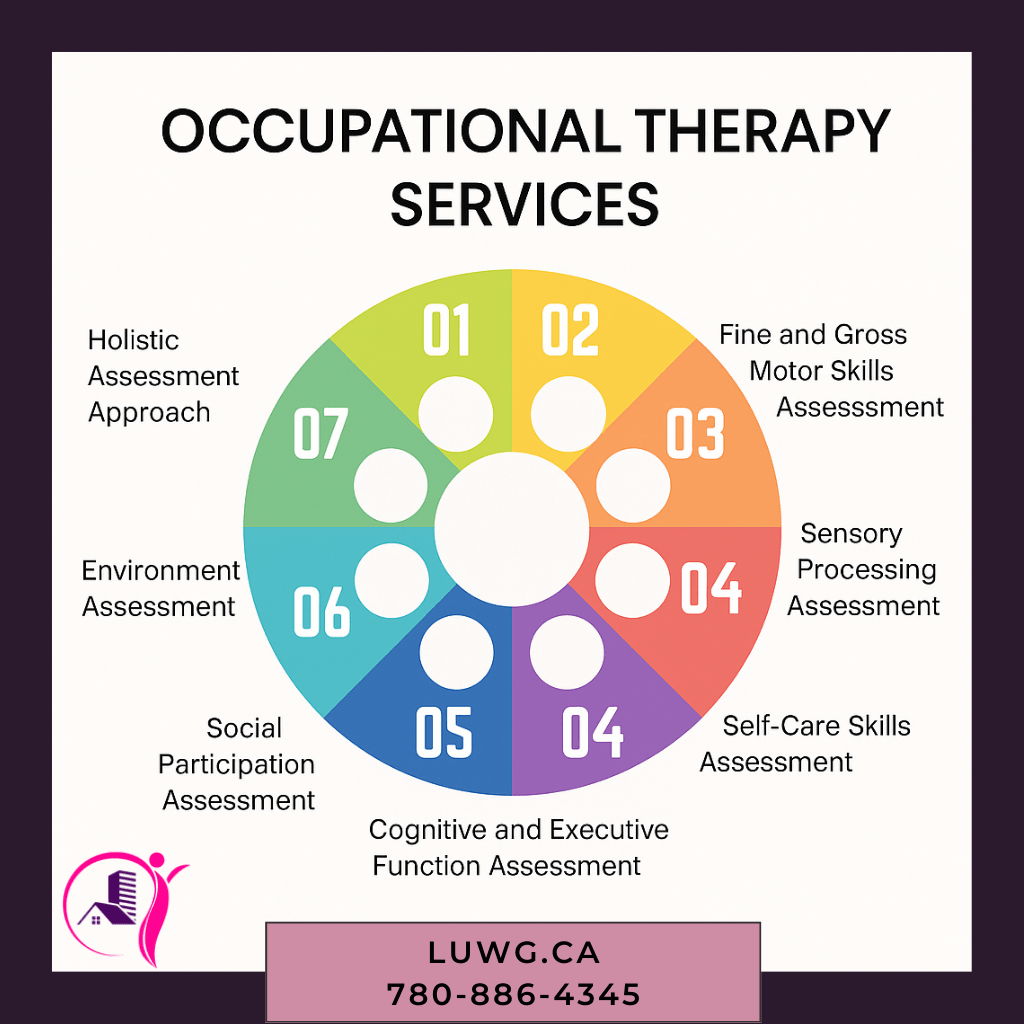Supporting Children, Teens, and Adults Through Holistic Mental Health-Oriented Care
At Level Up Wellness Group (LUWG), our Occupational Therapy (OT) services are grounded in a compassionate, strengths-based, and evidence-informed approach. We support individuals across the lifespan—helping children, adolescents, and adults build the functional, cognitive, sensory, and emotional skills they need to participate fully in home, school, work, and community life.
Whether you’re seeking support for a child struggling with sensory overload, a teen navigating academic and emotional challenges, or an adult coping with executive dysfunction and burnout, our experienced mental health-focused OTs are here to help.
What is Occupational Therapy?
Occupational Therapy helps people engage more successfully in the activities (“occupations”) they need and want to do. These may include daily self-care routines, learning, working, socializing, or leisure activities.
At LUWG, our therapists specialize in mental health occupational therapy, meaning we address the emotional, sensory, behavioral, and cognitive aspects of function—not just the physical.
We take a holistic and client-centered approach, meaning our care is tailored to each person’s environment, values, and goals.

Who We Support
Children
Children often need occupational therapy support when they are struggling to meet developmental milestones or experiencing difficulties with regulation, attention, or sensory integration.
Our pediatric occupational therapy services may support:
- Sensory Processing Difficulties (e.g., sensitivity to textures, sound, movement)
- Fine & Gross Motor Delays (writing, cutting, running, jumping)
- Emotional Regulation (tantrums, outbursts, transitions)
- Daily Routines (feeding, dressing, toileting)
- Play & Social Participation (parallel play, group interaction, play therapy)
We use play-based, engaging approaches rooted in child development to help children build confidence, independence, and joy in daily life.
Teens
Teenagers face increasing academic, social, and personal demands. Occupational therapy can provide essential support as teens develop independence and coping strategies. We assist with:
- Executive Functioning Skills (planning, organizing, task initiation)
- Sensory Regulation (managing distractions, hypersensitivity)
- Academic Performance (time management, studying strategies)
- Mental Wellness (coping with anxiety, low motivation, overwhelm)
- Social Skills (peer interactions, communication strategies)
- Transition Readiness (independent living skills, vocational prep)
Our occupational therapists work collaboratively with teens and their families to strengthen resilience and build adaptive skills.
Adults
Adult clients often seek occupational therapy when daily life feels overwhelming or unmanageable due to stress, burnout, executive dysfunction, mental health challenges, or neurological conditions.
We support adults with:
- Work-Life Balance
- Routine & Schedule Design
- Emotional Regulation & Mental Health Strategies
- Cognitive & Executive Functioning
- Sensory Modulation in the Workplace or Home
- Support with Daily Living and Life Transitions
Our mental health occupational therapists can help you reclaim energy, purpose, and structure—so you can function better and feel better.
Core Areas of Occupational Therapy Support
As shown in the infographic, occupational therapists assess and support clients in the following domains:
- Holistic Assessment Approach
- Fine and Gross Motor Skills Assessment
- Sensory Processing Assessment
- Self-Care Skills Assessment
- Cognitive and Executive Function Assessment
- Social Participation Assessment
- Environmental Assessment
These assessments help create individualized treatment plans that address motor, sensory, cognitive, emotional, and environmental factors that may impact daily functioning.

Everyday Skills We Help With
Occupational therapy is all about helping people engage in the activities that matter most. The visual chart you see here outlines the areas of daily living and participation we target through therapy:
Activities of Daily Living (ADLs)
- Bathing, toileting, grooming, eating, dressing, mobility
Instrumental Activities (IADLs)
- Time management, cooking, shopping, child care, money handling
Sleep & Rest
- Sleep preparation, routines, and rest strategies
Work & Education
- Job readiness, executive skills, academic accommodations
Social Participation & Relationships
- Peer interaction, friendships, family roles, communication skills
Play & Leisure
- Engagement in joyful, meaningful activities
Health Management
- Medication routines, emotional wellness, physical activity, nutrition
Occupational Therapy Goals at LUWG
| Domain | Example Goals |
|---|---|
| Self-Care & Routines | Improving morning routines, independence in toileting |
| Focus & Attention | Sustaining attention in class or work tasks |
| Emotional Regulation | Managing anxiety, meltdowns, and transitions |
| Sensory Integration | Reducing sensory overload in busy environments |
| Executive Functioning | Task initiation, time management, memory strategies |
| Daily Participation | Engaging in school, home, or social roles with confidence |
Assessments We Offer
Choose from a range of targeted, strengths-based assessments:
- Sensory Processing Assessments
Evaluate how sensory input affects regulation, learning, and behavior. - Fine & Gross Motor Assessments
Assess coordination, strength, and handwriting or movement challenges. - ADHD Coaching & Executive Function Support
Build tools for task initiation, time management, and emotional control.
Have Questions?
frequently asked questions
Is this therapy covered by insurance?
Many extended health benefit plans cover OT services. Check your coverage or ask us for help.
Do I need a diagnosis to book an assessment?
No! If you’re struggling with daily function, sensory processing, focus, or emotional regulation—OT can help, with or without a formal diagnosis.
Do you work with children with autism or ADHD?
Yes. Our OTs are experienced in supporting neurodiverse individuals and their families with a strengths-based and affirming approach.
What’s the difference between OT and counselling?
OT focuses on daily skills, executive function, routines, and sensory/emotional regulation. It can complement counselling or psychotherapy beautifully.
Ready to get started? Have questions?
Take the Next Step Toward Thriving
If you or your loved one are navigating challenges with focus, routines, regulation, or daily life participation, Occupational Therapy can make a real difference.
Whether you’re a parent seeking support for your child, a teen needing strategies for school stress, or an adult looking to improve your mental wellness and functionality—we’re here to help you thrive, not just survive.


